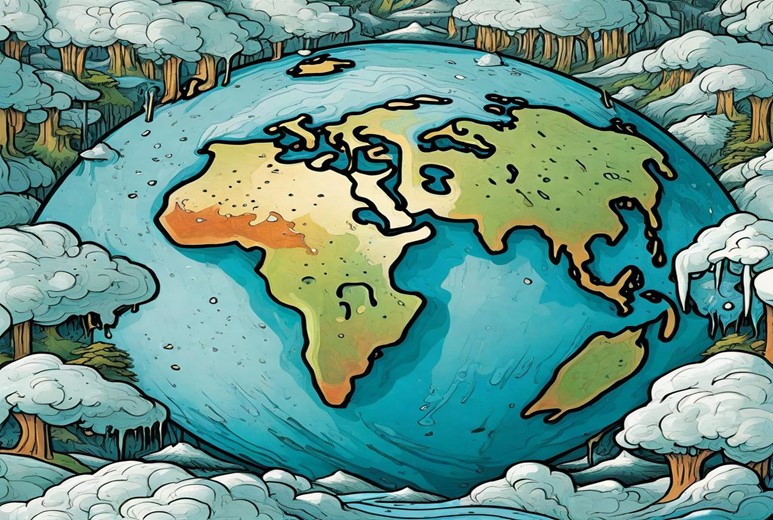
By Hira Hassan
In a world of constant change, some transformations are less visible but immensely impactful. One such transformation is happening before our eyes: the gradual melting of the polar ice caps and its catastrophic consequence of rising sea levels.
Imagine a world where shorelines vanish, coastal cities submerge, and entire communities are forced to abandon their homes. It’s not a scene from a dystopian movie; it’s a potential reality we face if we don’t act swiftly.
The ice caps, which have stood for millennia, are melting at an alarming rate. The reasons are manifold, but human activities, including the burning of fossil fuels and deforestation, stand as primary culprits. Glaciers and ice sheets melt as temperatures rise, pouring vast amounts of water into the oceans. This surge in sea levels isn’t just a distant threat, it’s a here-and-now crisis. Small island nations like the Maldives and Tuvalu are already grappling with encroaching waters. Coastal erosion, flooding, and the salinization of freshwater sources are becoming daily battles for these communities. But it is not just islands feeling the impact. Major coastal cities around the world, from Miami to Mumbai, are facing an existential threat. The cost of inaction is immeasurable, not just in terms of financial losses, but in the displacement of millions and the loss of irreplaceable cultural heritage.
The urgency of this situation demands action on a global scale. Governments, industries, and individuals all bear responsibility. Cutting carbon emissions, transitioning to renewable energy, and protecting vital ecosystems are crucial steps. Policy changes and international cooperation are essential to address this planetary challenge. However, individual actions matter too. Simple changes in our daily lives reducing energy consumption, minimizing waste, and advocating for sustainable practices can collectively make a significant difference. Education and awareness play pivotal roles. By spreading knowledge about the impact of climate change and the importance of conservation efforts, we empower more people to become stewards of our planet.
The time to act is now. We stand at a crossroads where our decisions today will shape the world our children inherit tomorrow. We owe it to future generations to preserve our planet, to ensure that coastlines remain vibrant and that communities thrive without the constant threat of encroaching waters. Let us not wait until the problem hits closer to home. Let’s take a stand against rising seas and melting ice caps. Together, we can create a future where our world remains rich with diverse landscapes, where shores remain intact, and where every individual has a chance at a secure and flourishing life. The challenge is immense, but our collective resolve is stronger. It’s time to act before it’s too late.
______________________
The author is a student at the Women University Multan in the department of Mathematics.

